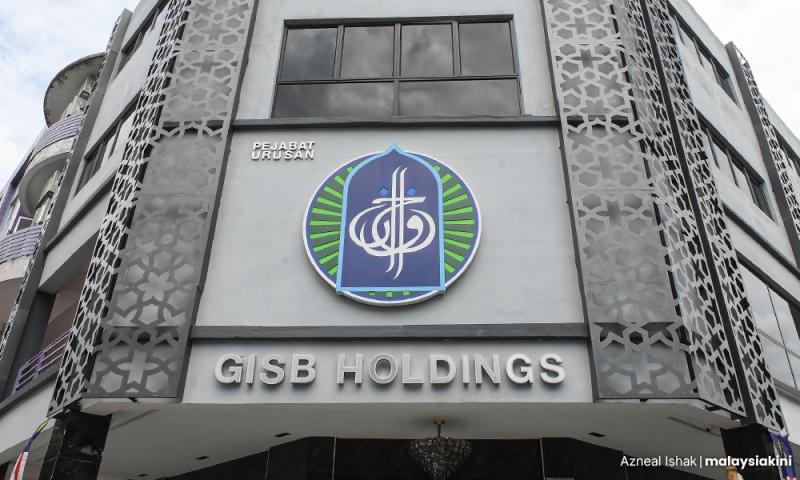
Sisters in Islam
Published: Sep 25, 2024 1:10 PM
COMMENT | When it comes to the investigation involving Global Ikhwan Service and Business Holdings (GISBH), Bukit Aman Criminal Investigation Department director, Mohd Shuhaily Mohd Zain said: "I am disgusted."
A simple yet deeply unsettling statement from senior police official. His words, brief but loaded, reflect a growing sense of outrage over what is being uncovered.
Imagine a man who claims to be a father of 34, yet admits to knowing the whereabouts of only two of his children.
This is not fiction - it is the testimony from one of the detainees connected to GISBH, a so-called "Muslim business" that has been at the centre of a shocking investigation.
This man, one of 156 suspects detained in raids during Ops Global, is part of a system that reeks of exploitation.
Multiple wives, neglected children and a disturbing culture of evasion seem to be the norm within this group, according to Inspector-General of Police Razarudin Husain.
However, what truly sickens the soul isn’t just the behaviour of these individuals. It’s the appalling response of some members of our society - the very people who should be condemning these acts are instead defending them, spinning excuses rooted in religious and cultural narratives.
Even more concerning, factions are attempting to shift the narrative by arguing, "We must protect Muslim businesses."
But does the fact that it’s a Muslim-owned business justify atrocities committed against children? This kind of reasoning promotes blind loyalty and distorts Islam for personal gain.
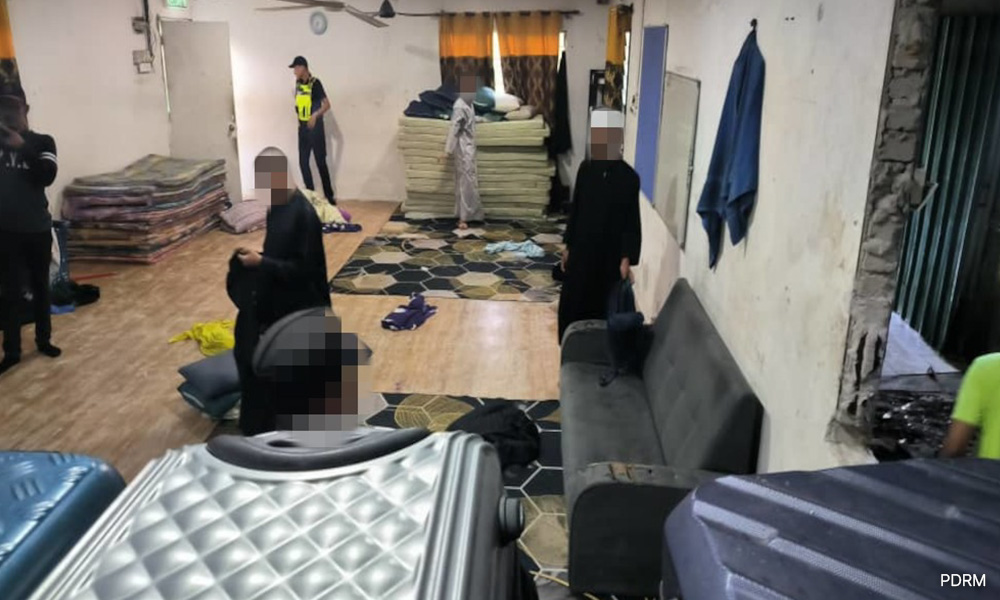
Police operation at one of GISBH’s premises
Such narratives, rooted in manipulation, leave no room for accountability or morality, weaponising religion for selfish purposes.
This is not just dangerous - it is a gross misrepresentation of faith.
How have we reached a point where such blatant abuses are excused in the name of faith or business?
Let’s be clear: there is no justification for abandoning children, for fostering environments where men can shirk their responsibilities, abuse children and women or for cultivating a culture of impunity.
This isn't about Islam - it’s about people hiding behind religion to justify their wrongs.
It’s exploitation, pure and simple
Yet, political actors, religious figures and community leaders are stepping forward not to call out this grotesque misuse of power but to shield these perpetrators. They wrap themselves in the cloak of religious righteousness, as though faith can absolve them from accountability.
One key political actor, PAS, has issued a statement expressing support for the police investigation into GISBH.
While calling for action against individuals found guilty of wrongdoing, PAS secretary-general Takiyuddin Hassan emphasised that the drive to punish should not negatively affect the group as a whole, especially its innocent members or the legitimate and beneficial activities of GISBH.
Such narratives, rooted in manipulation, leave no room for accountability or morality, weaponising religion for selfish purposes.
This is not just dangerous - it is a gross misrepresentation of faith.
How have we reached a point where such blatant abuses are excused in the name of faith or business?
Let’s be clear: there is no justification for abandoning children, for fostering environments where men can shirk their responsibilities, abuse children and women or for cultivating a culture of impunity.
This isn't about Islam - it’s about people hiding behind religion to justify their wrongs.
It’s exploitation, pure and simple
Yet, political actors, religious figures and community leaders are stepping forward not to call out this grotesque misuse of power but to shield these perpetrators. They wrap themselves in the cloak of religious righteousness, as though faith can absolve them from accountability.
One key political actor, PAS, has issued a statement expressing support for the police investigation into GISBH.
While calling for action against individuals found guilty of wrongdoing, PAS secretary-general Takiyuddin Hassan emphasised that the drive to punish should not negatively affect the group as a whole, especially its innocent members or the legitimate and beneficial activities of GISBH.
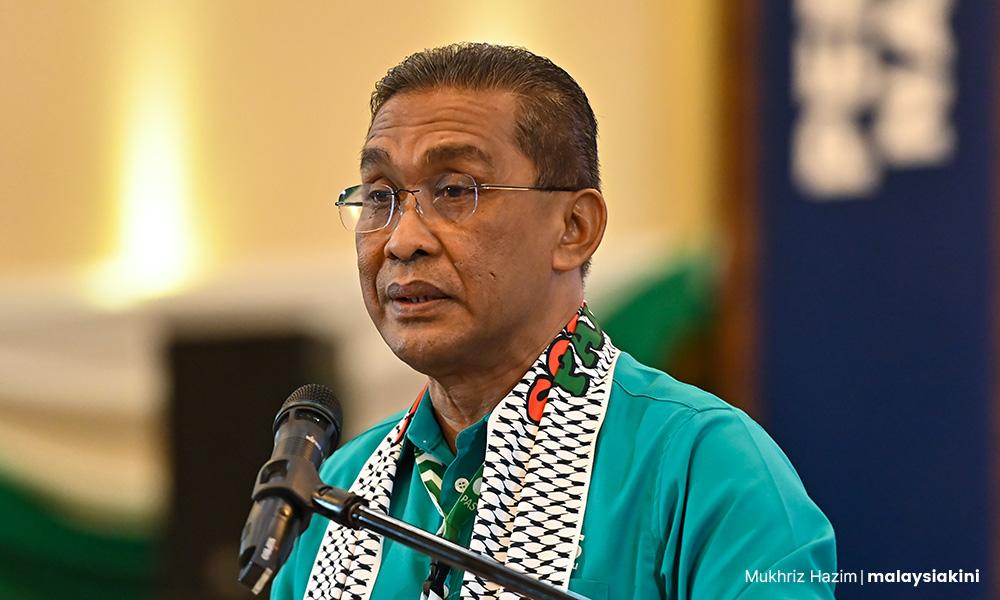
PAS secretary-general Takiyuddin Hassan
“PAS believes that the positive contributions of this group, including its extensive business network, should be safeguarded from rash or unjust actions driven by impulsive sentiments, prejudice, competition, or political agendas,” he said in a statement.
Takiyuddin also stressed the need for any action against GISBH to be handled with caution.
Does PAS truly believe it’s acceptable to build a business empire on the suffering of abused children and women? Is PAS willing to overlook the exploitation of vulnerable individuals for the sake of protecting a business network?
This is not just an insult to women, children and families - it is an affront to the values of Islam itself.
What’s most shocking is that we are expected to sit quietly while these narratives are pushed, as though we are too blind or too complacent to challenge them. This is not merely "disappointing", it is a profound disservice to justice.
Normalising abuses
A nation like ours, one that prides itself on diversity, human rights, and fairness, cannot stand by while such abuses are normalised. We must reject any attempt to cloak exploitation under the guise of religious business.
It’s time for us to face the uncomfortable truth: when businesses like GISBH are allowed to flourish, unchecked and defended, we are not just witnessing individual wrongdoings.
We are watching a systemic failure - one where religious justification is weaponised to excuse behaviours that should never be tolerated.
Enough is enough. If we claim to stand for justice, then our society must rise and reject these so-called "defenders" of faith who, in reality, are nothing more than defenders of exploitation.
In addition to this, we also must not overlook the accounts of young women being indoctrinated at universities, marrying men within the sect and being reduced to little more than slaves and reproductive machines for their husbands.
“PAS believes that the positive contributions of this group, including its extensive business network, should be safeguarded from rash or unjust actions driven by impulsive sentiments, prejudice, competition, or political agendas,” he said in a statement.
Takiyuddin also stressed the need for any action against GISBH to be handled with caution.
Does PAS truly believe it’s acceptable to build a business empire on the suffering of abused children and women? Is PAS willing to overlook the exploitation of vulnerable individuals for the sake of protecting a business network?
This is not just an insult to women, children and families - it is an affront to the values of Islam itself.
What’s most shocking is that we are expected to sit quietly while these narratives are pushed, as though we are too blind or too complacent to challenge them. This is not merely "disappointing", it is a profound disservice to justice.
Normalising abuses
A nation like ours, one that prides itself on diversity, human rights, and fairness, cannot stand by while such abuses are normalised. We must reject any attempt to cloak exploitation under the guise of religious business.
It’s time for us to face the uncomfortable truth: when businesses like GISBH are allowed to flourish, unchecked and defended, we are not just witnessing individual wrongdoings.
We are watching a systemic failure - one where religious justification is weaponised to excuse behaviours that should never be tolerated.
Enough is enough. If we claim to stand for justice, then our society must rise and reject these so-called "defenders" of faith who, in reality, are nothing more than defenders of exploitation.
In addition to this, we also must not overlook the accounts of young women being indoctrinated at universities, marrying men within the sect and being reduced to little more than slaves and reproductive machines for their husbands.
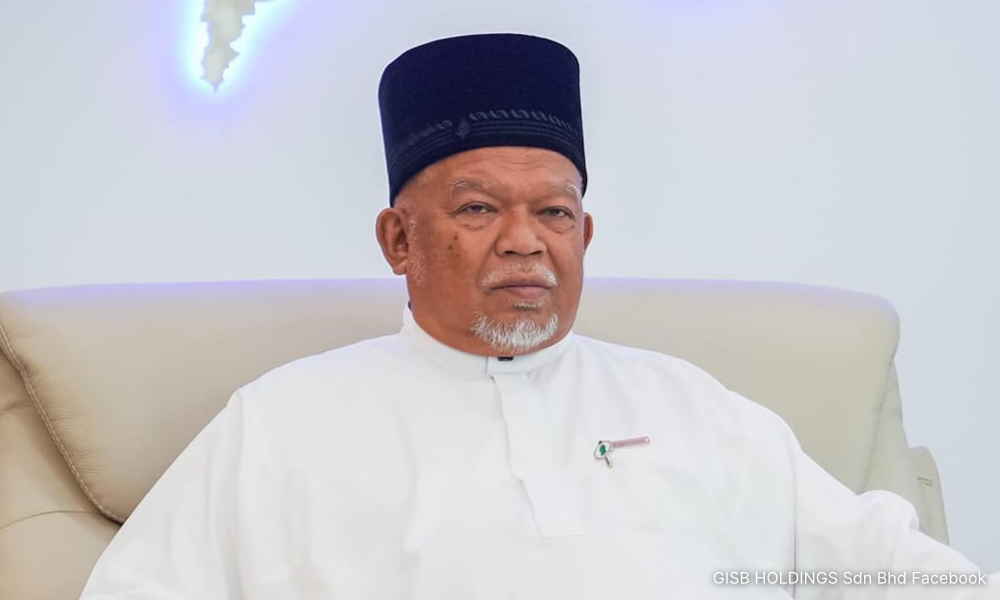
GISBH CEO Nasiruddin Mohd Ali
It is inconceivable that such abuse could occur in the name of religion. Over 400 children were rescued from homes allegedly run by GISBH, many of them bearing physical and emotional scars from severe neglect, physical abuse and even sexual violence.
Several senior management people including CEO Nasiruddin Mohd Ali, have been remanded for their involvement in GISBH, which is also allegedly linked to the now-banned Al-Arqam sect.
This scandal raises urgent questions: how could these atrocities happen under the guise of Islam, and how did we, as a society, allow this to flourish?
Unchecked growth under authorities
The roots of these concerns lie in GISBH's historical ties to the Al-Arqam movement, which was banned by Malaysia’s National Fatwa Council in 1994.
Originally operating as Rufaqa Corp, this rebranded entity has transformed into a significant private conglomerate with 25 subsidiaries and assets worth RM325 million.
With over 5,000 employees across 20 countries, including notable holdings in major cities, its expansive growth raises critical questions: How did the authorities allow a group with such a controversial past to flourish with nothing more than a name change?
Despite being officially banned, al-Arqam's legacy persists through GISBH, which has expanded its reach and influence globally. How has this organisation managed to operate, with a simple name change, without oversight from local religious authorities?
Recent revelations surrounding the delay in addressing abuses within welfare homes linked to GISBH highlights a troubling pattern of inaction by government agencies.
The Islamic Development Department’s (Jakim) acknowledged that action began in 2019, with closed-door meetings involving the National Council of Islamic Religious Affairs (MKI), the Attorney-General’s Chambers, and a special convening of national security agencies in 2022, yet it took more than five years for authorities to intervene meaningfully.
It is inconceivable that such abuse could occur in the name of religion. Over 400 children were rescued from homes allegedly run by GISBH, many of them bearing physical and emotional scars from severe neglect, physical abuse and even sexual violence.
Several senior management people including CEO Nasiruddin Mohd Ali, have been remanded for their involvement in GISBH, which is also allegedly linked to the now-banned Al-Arqam sect.
This scandal raises urgent questions: how could these atrocities happen under the guise of Islam, and how did we, as a society, allow this to flourish?
Unchecked growth under authorities
The roots of these concerns lie in GISBH's historical ties to the Al-Arqam movement, which was banned by Malaysia’s National Fatwa Council in 1994.
Originally operating as Rufaqa Corp, this rebranded entity has transformed into a significant private conglomerate with 25 subsidiaries and assets worth RM325 million.
With over 5,000 employees across 20 countries, including notable holdings in major cities, its expansive growth raises critical questions: How did the authorities allow a group with such a controversial past to flourish with nothing more than a name change?
Despite being officially banned, al-Arqam's legacy persists through GISBH, which has expanded its reach and influence globally. How has this organisation managed to operate, with a simple name change, without oversight from local religious authorities?
Recent revelations surrounding the delay in addressing abuses within welfare homes linked to GISBH highlights a troubling pattern of inaction by government agencies.
The Islamic Development Department’s (Jakim) acknowledged that action began in 2019, with closed-door meetings involving the National Council of Islamic Religious Affairs (MKI), the Attorney-General’s Chambers, and a special convening of national security agencies in 2022, yet it took more than five years for authorities to intervene meaningfully.
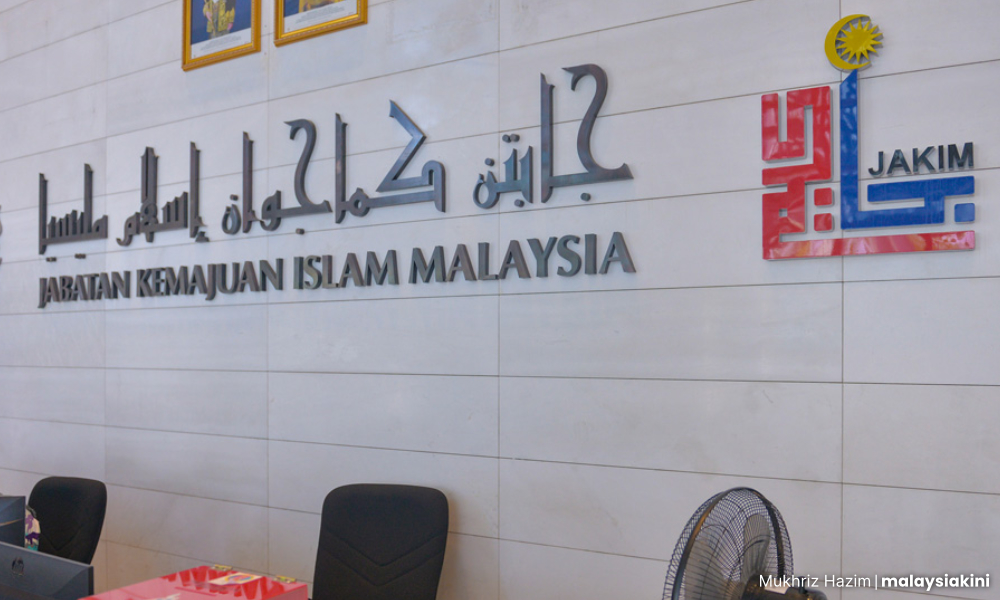
This delay highlights systemic failures across key enforcement bodies, raising critical questions about accountability.
Why were the welfare homes allowed to operate for so long despite clear warnings? The inaction exposes gaps in coordination and execution that result in serious harm to vulnerable populations.
And what mechanisms have enabled this controversial group not only to survive but to prosper in Malaysia? The answer is simple. They have used Islam as a cover to continue their abuses and misguided religious practices.
In a society where questioning anything that appears even remotely Islamic is frowned upon, many choose to turn a blind eye, relying on blind faith instead.
Unseen victims
Amidst the chaos, one crucial point has been overlooked: the abuse and indoctrination of women and children, blatantly carried out for at least two generations. Religious authorities, while actively punishing personal sins, allowed these horrific atrocities to unfold and remained silent for five years - why?
In the end, the Islamic image portrayed by GISBH was used to blind their sharp eyes, typically focused on enforcing punitive measures for individual transgressions.
GISBH, perceived as an Islamic organisation, certainly benefited from this, enabling it to hide the horrific internal abuse inflicted on its members, especially women and children.
It is deeply troubling that such practices were allowed to occur, largely because religion in Malaysia remains a taboo subject.
Had these indoctrinated women been in an environment where open discussions on religion were encouraged, they might have been able to make more informed and empowered choices.
Patriarchy’s benefits to men
GISBH reeks of patriarchy, where men reaped immense benefits. Despite lacking the financial means, many had multiple wives and some even fathered up to 20 children, completely ignoring their responsibility to provide for their families, as mandated by Islamic law.
It's baffling to think how a man could care for 20 children, especially in a world where providing for even one is a challenge.
In this environment, children suffered both physical and emotional abuse, while women were enslaved, stripped of any understanding of their rights - whether under Islamic or federal law.
People worked for the organisation without pay, and only Allah knows what other conditions they endured. What have these women and children gone through? We will never fully grasp the extent of their suffering but can only imagine the overwhelming pain and helplessness they must have felt.
There is a clear reason why GISBH was allowed to thrive: as a nation, we are afraid to have open and critical conversations about religion, especially when parochial interpretations flourish from the mainstream narrative set by the authorities, and by extension, the government.
This narrative is deeply rooted in patriarchy, emphasising male superiority and the expectation that women remain subservient.
Superficial Islam: Illusion of piety
In Malaysia, there is an obsession with appearances. We have created a version of Islam that prioritises how one looks and performs rituals rather than how one embodies the values of the faith.
It’s an illusion of piety, where the outward display of religious practice - donning specific attire, praying without understanding, and following rituals mechanically—has taken precedence over internalising the core teachings of compassion, justice, and mercy.

Our political leaders have exacerbated this issue, embracing a brand of “political Islam” that focuses on image rather than substance.
They encourage people to appear religious instead of fostering a deeper, more meaningful understanding of what it means to be a Muslim. Wearing a “serban” or attending a “sekolah pondok” does not automatically make one an expert on Islam, yet we seem to elevate these figures without question. This blind faith in appearances over knowledge has led us astray.
Islam, a religion of wisdom and compassion, has been reduced to mere rituals and dress codes, while intellectual engagement and critical thought are sidelined.
In a nation where politicians compete to “out-Islam” one another, the true beauty of our multicultural, multi-religious society is lost.
Hypocrisy in leadership
We must ask ourselves: are our Muslim leaders truly following the guidance of Allah, or are they simply doing whatever it takes to secure votes?
Being perceived as a “good Muslim” seems to carry political weight, but this perception is often hollow. Many of our so-called “pious” leaders face corruption charges or other scandals, revealing the hypocrisy of their outward displays of faith.
Corruption runs rampant, with even high-ranking officials, such as immigration officers at KLIA, being arrested for illegal activities.
At the same time, intellectual debate is stifled. Open, respectful discourse on matters affecting the community, especially within religious institutions, is actively discouraged.
Diverse perspectives on Islamic jurisprudence are not welcomed, as our authorities seem to favour a singular, narrow interpretation of Islam.
Spirit of Islam
At its core, Islam is a religion of justice, mercy and wisdom. It calls for intellectual engagement, continuous learning and compassion. Yet in Malaysia, we have drifted far from these ideals.
Instead of fostering a society that encourages understanding and respect for diverse perspectives, we have allowed religious conservatism to dominate, leaving little room for rational debate or intellectual growth.
The tragic case of the children under GISBH’s care is a painful reminder of what happens when we lose sight of the values of our faith. The abuse they endured is not just a failure of one organisation - it is a failure of our society.
It is time for our leaders, both religious and political, to reflect on the teachings of Islam and work to ensure that these principles - justice, compassion and humanity - are upheld for all Malaysians.
The question remains: will we continue to focus on superficial displays of religiosity, or will we embrace the spirit of Islam and work toward a more just, compassionate and inclusive Malaysia?
SISTERS IN ISLAM is an NGO working towards advancing the rights of Muslim women in Malaysia within the framework of Islam, universal human rights principles, constitutional guarantees, as well as the lived realities and experiences of women.
Most of the Muslims I know say GISB is a "small matter".
ReplyDelete